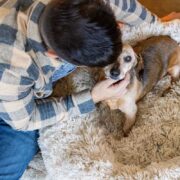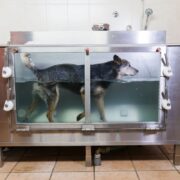Lately, you’ve noticed your dog doing something peculiar: he’s eating grass. You’re wondering, why does my dog eat grass? Is there something wrong with him? Should I stop my dog from eating grass, or is there a perfectly normal explanation as to why he’s engaging in this behavior?
First, make sure you learn the reasons why dogs eat grass before jumping to any conclusions or getting scared. Also, as a pet parent, you need to be in touch with your veterinarian to talk about any changes you’ve noticed in your dog. Then, you can get some real answers.
Figure out why dogs eat grass, and then see if it applies to your dog’s situation. The following are some reasons why dogs eat grass.
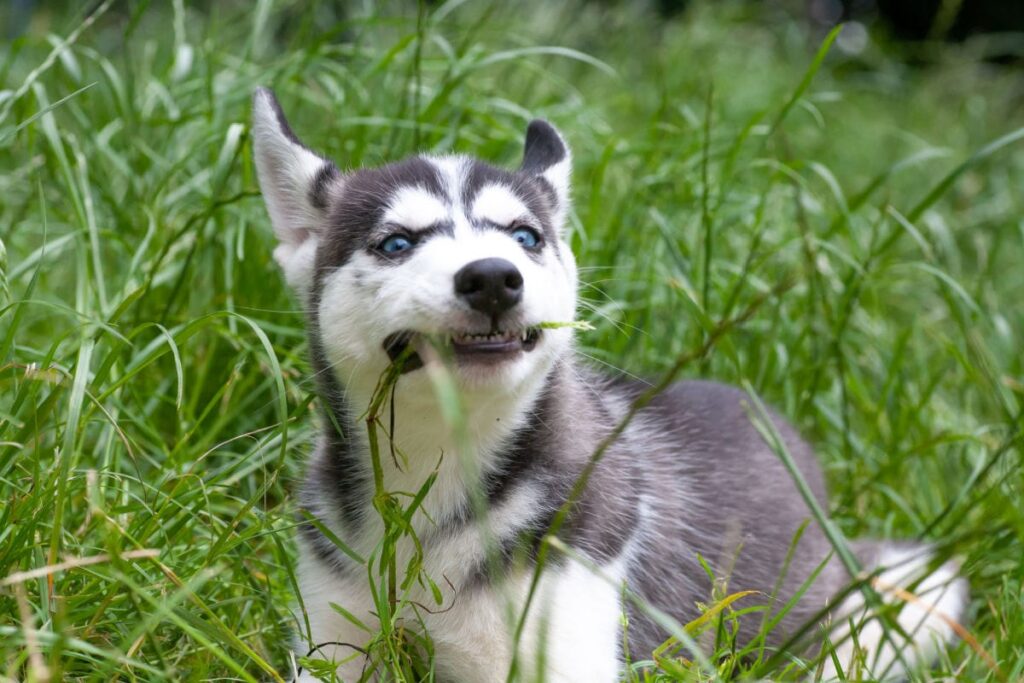
1. They Need Roughage
Dogs need to have a balanced diet that includes roughage, also known as dietary fiber. Grass is a good form of fiber; if your dog doesn’t get enough fiber, he may not be able to digest food as well as go to the bathroom properly.
Note that if your dog seems like he’s having an upset stomach, or digestive issues, or shows any other signs of illness, that you contact your DVM right away. Then, they can look into the medical conditions your dog may be experiencing and any nutritional deficiency he could have.
You may have to change your dog’s diet, put him on medicine, or take other measures to protect him and keep him healthy.
2. It’s Part of Their DNA
Dogs are omnivores, which means they are meat-eating and plant-eating animals. While it may puzzle pet owners, the truth of the matter is that eating grass might be perfectly natural for dogs. Wild dogs would survive by eating some forms of vegetation, like grass. Essentially, if your dog is doing it for this reason, it’s normal dog behavior.
3. Your Dog Has Pica
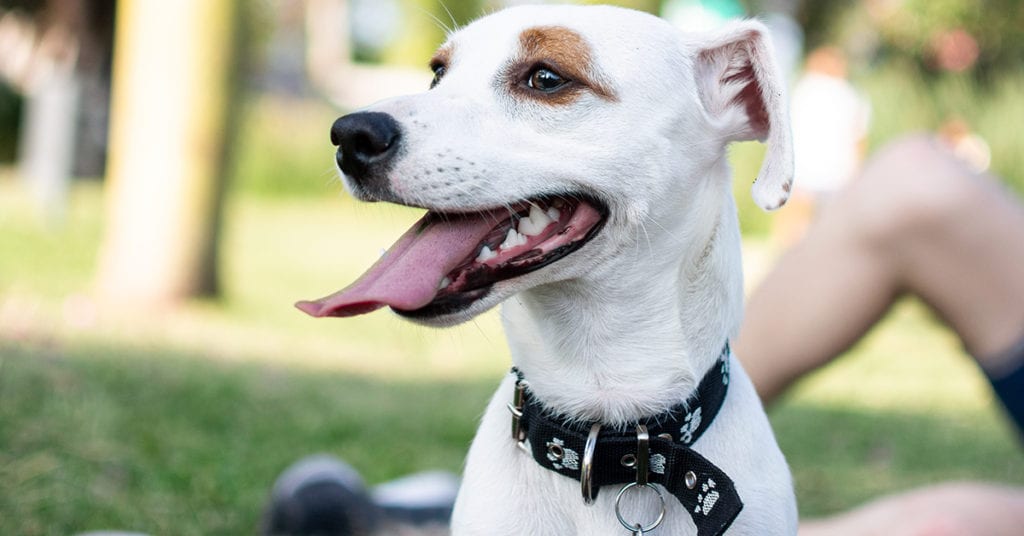
Pica is a condition where your dog likes to chew non-food items. Grass-eating behavior could be a sign of pica. Typically, dogs engage in pica because they are bored, so you could address this with a mentally-stimulating puzzle game. Puzzle games come in different difficulty levels depending on your dog’s skill set.
You can start at level one with the Dog Smart Interactive Treat Puzzle Dog Toy, where you put your dog’s treats under the nine bones and watch him try to find them. This is suitable for any breed and size, and dog owners can have their pup move onto level two once he’s solved this puzzle.
4. Your Dog Is Bored
Your pup may be bored and resort to chewing on grass as a form of entertainment. He could also be lonely or stressed out and need some relief. Incorporating healthier habits into his life like playing with chew toys is likely going to solve this problem.
5. Your Dog Isn’t Getting Enough Nutrients
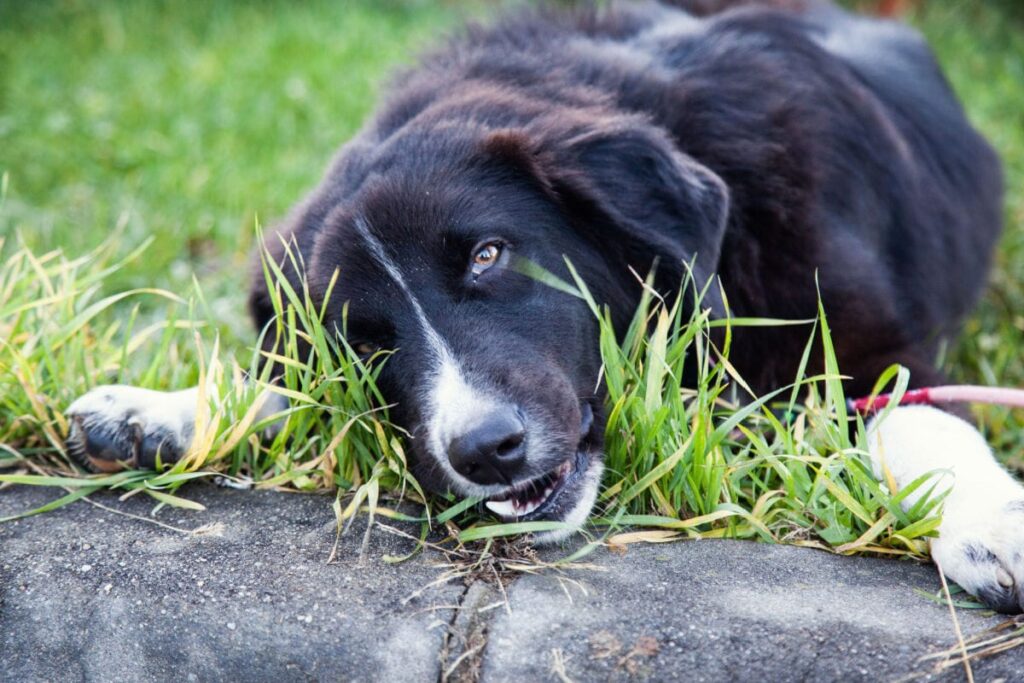
It’s good for dogs to have a high-fiber diet so they can more easily digest their food and avoid constipation. Additionally, they need certain vitamins and minerals to function at an optimal level in their day to day.
If your dog is eating grass all the time, then you can give your vet a call and ask them what kind of dog food they recommend. You should always purchase dog food based on your dog’s age (puppy, adult, or senior) and weight (regular or low-calorie food), as well as dietary needs based on any medical conditions he has. Going with high-quality dog food is ideal, even if it is a little more expensive.
It’s also important to give your dog high-quality treats that have a healthy source of protein. Wholesome Pride’s raw freeze-dried salmon treats are made of wild-caught salmon from Alaska, which provides your pup with quality raw fish. Additionally, they are bite-sized and only 4 calories per treat, which is perfect if your dog is on a low-calorie diet.
6. Your Dog Wants Water
Grass contains a high amount of water, especially in the morning when the morning dew is on it or at night when the water settles on it. Your dog may be munching on the grass because he’s thirsty. Make sure your pup has access to clean water at all times, especially during the summer months.
7. Your Dog Likes the Texture and Taste of Grass
Your dog may just enjoy the texture and taste of grass. That’s not a big deal. Also, it’s a good source of fiber. As long as the grass-eating isn’t indicative of something serious, your vet has given your dog a clean bill of health, and the grass doesn’t contain poop or other hazards, then it could just be a funny habit your dog has.
Concerns About Dogs Eating Grass
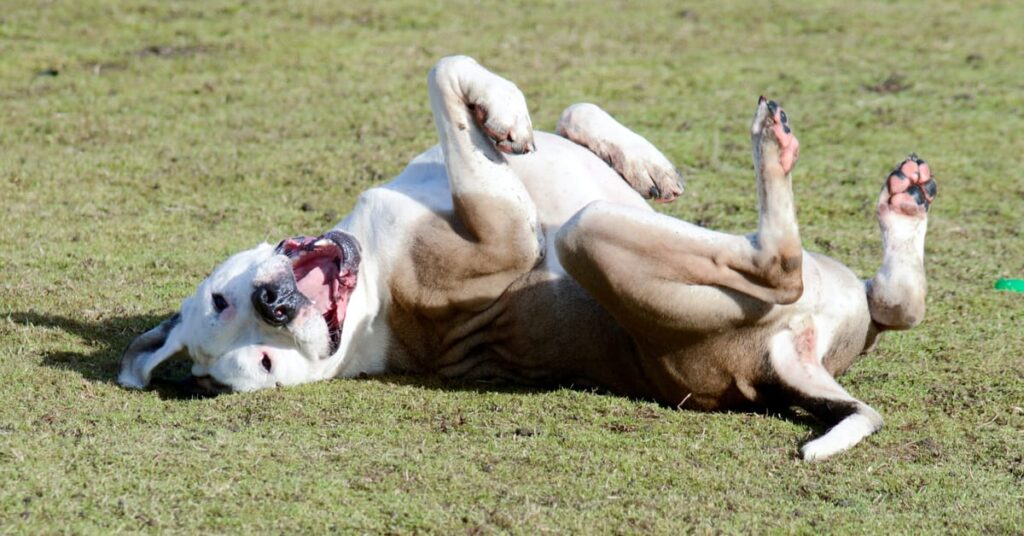
There are some things you should be concerned about if your dog is eating grass. For instance, if there is pee and poop on the grass, you don’t want your dog munching away on it. Your dog could be susceptible to intestinal parasites like ringworm or hookworm if he’s accidentally (or purposefully) eating the poop on the grass. Plus, if your dog vomits after eating it, that means it’s upsetting his stomach.
If the grass has pesticides or herbicides on it, and your dog comes into contact with it, he could experience seizures, rapid heart rate, diarrhea, vomiting, abdominal pain, and, in the worst-case scenario, death.
Your dog should never eat or even walk on grass after it’s been treated with pesticides and herbicides.
If you can’t get your dog to stop eating grass, you may want to look into another type of grass for your yard – like fake grass. Artificial turf is safe for pups, and some kinds of it are virtually indestructible. If your dog likes to dig up the yard and destroy the grass he eats, putting in fake grass could be a good solution.
Dogs Eating Grass
Eating grass may not be a big deal. Sometimes, it is: it may be a sign of illness. Once you do your research, make sure you reach out to your vet to get a definitive answer, which will help you keep your dog happy, safe, and satisfied all at the same time.
